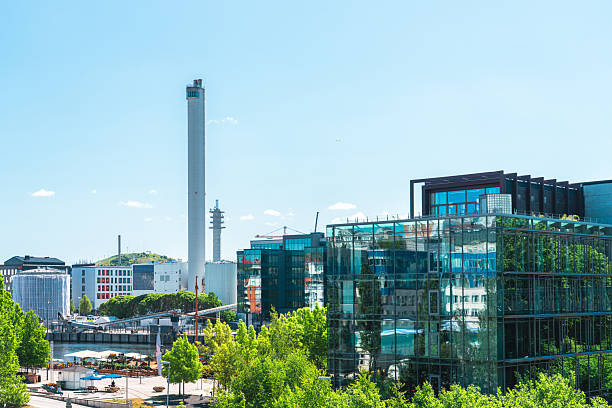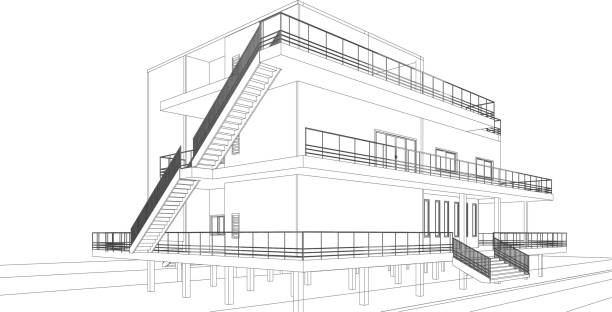Keep or Sell Land in Los Angeles? An Expert Take for Smart Investors
Imagine inheriting a few parcels of land in Los Angeles. At first glance, it feels like a goldmine. After all, LA is one of the hottest real estate markets in the country. But as soon as you start crunching the numbers, doubts creep in. Should you hold onto the land and wait for appreciation? Sell it and reinvest elsewhere? Or roll up your sleeves and build something yourself?
Table of Contents
ToggleThese are questions many LA landowners face. The decisions are rarely simple. Let’s break it down, step by step, from an expert perspective, so you can make a clear, informed choice.
Understanding the True Value of Land in LA
The first step is figuring out what your land is actually worth. On the surface, it may seem like a valuable asset—but location, topography, and market trends make a huge difference.

Key Factors That Affect Land Value
Location: Neighborhood desirability, access to highways, and nearby amenities.
Topography: Hillsides, slopes, and flood zones can significantly impact buildability.
Zoning and Restrictions: What can legally be built? Are there environmental or fire safety rules?
Market Trends: Are property values rising or stagnant in the area?
In our example, a family inherited 10,000 sq. ft. of land near Silver Lake, close to Elysian Park. While LA real estate is booming in some neighborhoods, this land has challenges: a steep hillside, proximity to busy roads, and past squatter activity nearby. All of these factors can slow development or lower its resale value.
To Sell or Hold: Weighing the Options
Deciding whether to keep or sell land comes down to three main considerations: financial potential, risk tolerance, and time commitment.
📞 Ready to Decide? Let JDJ Consulting Group Help!
We provide local LA expertise on land, zoning, and investment strategies. Avoid costly mistakes and maximize ROI.
Book Your ConsultationOption 1: Selling the Land
Selling is the simplest path. You get liquid cash, which you can reinvest in safer or more predictable options like the stock market, rental properties, or other real estate opportunities.
Benefits of selling:
Immediate access to cash
Avoids ongoing property taxes and maintenance
Removes development risks and headaches
Potential downsides:
You may miss out on future appreciation
The land could be undervalued due to temporary issues (e.g., steep hill, nearby traffic)
Expert Tip: If you choose to sell, work with a local consultant who knows the micro-market. Even a small increase in price guidance can make a big difference in LA’s competitive market.
2nd Option: Holding the Land
Holding can be tempting if you believe the neighborhood will appreciate. Some areas of LA have skyrocketed over the past decade, making patience profitable.
Pros of holding:
Potential for long-term appreciation
Flexibility to sell later or develop in the future
Opportunity to generate passive income through leasing or temporary uses
Cons of holding:
Annual property taxes and maintenance costs
Market volatility can stall value growth
Risk of squatters or liability issues
Real-life example: A landowner near Silver Lake might pay $1,500 per year in taxes and maintenance. Over 10 years, that’s $15,000 out of pocket. If the land doesn’t appreciate much, holding could feel like throwing money into a pit.
Developing Land: A Third Path
Some owners consider building on their land. Whether a single-family home, rental property, or a small Airbnb, development can unlock hidden value.
Challenges of Development
Steep Hills and Slopes: Construction costs rise with challenging terrain. Foundations must be secure, often requiring pilings or terracing.
Permits and Zoning: LA has strict building codes, especially near fire-prone areas or protected land.
Upfront Costs: Architects, engineers, and contractors can add up quickly.
Potential Rewards
High ROI if the area becomes more desirable
Steady rental income or profitable short-term rental
Added property value compared to raw land
Bullet Points: Quick Assessment Before Building
Confirm zoning and allowable building size
Consult an architect for feasibility studies
Get multiple contractor quotes for realistic cost estimates
Consider environmental and fire safety requirements
Insight from JDJ Consulting Group: Many LA lots that look “unbuildable” are actually developable with the right planning. But DIY attempts without professional guidance often fail.
Creative Ways to Use the Land Without Selling
If you’re not ready to sell or build, consider alternative ways to generate income or manage costs:
Lease the land: Rent it to someone who wants a tiny home, garden, or storage space.
Short-term projects: Pop-up events, seasonal parking, or community activities (following city rules).
Passive stewardship: Hiring a caretaker to maintain the property, preventing taxes and deterioration from going unpaid.
These options can offset expenses while keeping your long-term investment intact.
Navigating Market Risks
Los Angeles is unpredictable. Even prime neighborhoods can experience slowdowns or unexpected obstacles. Here’s how to protect your investment:
Regular Market Analysis: Track local sales, average $/sq. ft., and time-on-market trends.
Property Maintenance: Keep the land clean, accessible, and compliant with safety regulations.
Professional Advice: A local consultant can identify hidden risks like squatters, flooding, or legal complications.
Example: A family’s hillside lot near Silver Lake seemed “perfect” on paper, but squatter activity and traffic noise reduced its market appeal. A consultant’s insight could prevent costly mistakes.
Financial Comparison: Selling vs. Holding
Let’s break down a simple cost-benefit scenario:
| Scenario | Annual Costs | Potential Value in 10 Years | Pros | Cons |
|---|---|---|---|---|
| Sell | $0 | Immediate cash | Liquidity, low risk | No future appreciation |
| Hold | $1,500/year | Moderate appreciation | Flexibility, possible long-term gains | Maintenance costs, market risk |
| Develop | $50,000-$200,000+ upfront | Significant ROI if successful | Rental income, higher value | High cost, permits, construction risk |
JDJ Tip: Numbers don’t tell the whole story. Location, slope, and local trends often outweigh purely financial analysis.
Making the Right Decision
Choosing to sell, hold, or develop land requires a personalized approach. Consider these guiding questions:
What is your risk tolerance?
Do you want immediate liquidity or long-term growth?
Are you prepared to manage construction projects or tenants?
How important is it to keep the property in the family?
At JDJ Consulting Group, we believe in data-driven, local insights combined with practical advice. Every property is unique, and even a few hundred feet of slope or a nearby freeway can dramatically change your strategy.
Expert Advice: When to Call a Consultant
Even if you lean toward holding or selling, a professional real estate consulting firm can help:
Analyze neighborhood trends and micro-market data
Evaluate the true buildability of your lot
Provide realistic cost estimates for construction or maintenance
Help you navigate permits, zoning, and legal considerations
Think of a consultant as your local real estate GPS. They can guide you around obstacles and point toward the fastest, safest route to your financial goals.
Conclusion: Land Decisions in Los Angeles Are Never Simple
Owning land in Los Angeles can feel like holding a hidden treasure. But as any experienced investor will tell you, the devil is in the details. Taxes, terrain, market fluctuations, and legal considerations can turn an “easy decision” into a costly mistake.
Selling provides liquidity and peace of mind.
Holding could yield long-term gains but comes with carrying costs.
Developing unlocks potential but demands capital, planning, and patience.
Ultimately, the best choice depends on your financial goals, tolerance for risk, and willingness to manage the property. One thing is clear: expert guidance is essential. With a consulting firm like JDJ Consulting Group, you can make a confident, informed decision—whether you sell, hold, or build.
🏗️ Land Development ROI Estimator
FAQs About Keeping or Selling Land in Los Angeles
Should I sell my land in Los Angeles or hold onto it?
The decision depends on your personal goals and the land’s potential. Selling gives you immediate cash, which can be reinvested elsewhere, offering liquidity and reducing ongoing costs.
Holding the land could lead to long-term appreciation, especially if the neighborhood is improving or demand increases. A consultant can analyze market trends, zoning, and development potential to guide your choice.
How do I determine the true value of my LA land?
Land value isn’t just about square footage or location. You must consider:
Nearby property sales (“comps”)
The slope or terrain of the land
Zoning restrictions and permitted uses
Neighborhood demand and trends
A professional appraisal or a consultant with local knowledge can provide a realistic valuation.
Can I build on a steep or hillside lot in LA?
Yes, but it’s more complex than building on flat land. Hillside lots often require:
Special foundations or pilings to prevent shifting or erosion
Structural engineering for safety
Permits for grading, retaining walls, or drainage
Building on a hillside is doable, but costs can be higher, and careful planning is essential.
What are the costs of holding land in Los Angeles?
Even empty land isn’t free. Costs include:
Property taxes (can range from hundreds to thousands per year)
Maintenance (clearing debris, vegetation, or fencing)
Insurance for liability or natural risks
These costs accumulate over time, so holding land without a plan can become expensive.
Are there creative ways to use land without building a house?
Yes! Not every landowner wants to develop. Some options include:
Leasing space for a tiny home or sustainable living setup
Using it for gardens, storage, or parking
Short-term events like pop-ups or workshops (following local regulations)
These approaches can generate income and reduce carrying costs while preserving future flexibility.
How do zoning and permits affect land development?
Zoning defines what you can legally build—for example, single-family homes, multifamily units, or commercial use. Permits ensure compliance with:
Safety codes
Environmental regulations
Fire and hillside building restrictions
Ignoring these rules can lead to fines, forced demolition, or denied construction. Consulting a local expert is crucial.
Is it profitable to rent land or use it for short-term rentals?
It can be profitable but comes with limitations. In Los Angeles:
Short-term rentals often require the owner’s primary residence to qualify
Long-term leases may provide more stable income
Alternative uses like storage, gardening, or small structures can still create passive income without full development.
How do nearby issues like traffic or squatters affect land value?
External factors can significantly reduce your land’s attractiveness:
Proximity to noisy highways or traffic-heavy intersections lowers appeal
Squatters or illegal use can create liability and maintenance challenges
A local consultant can assess risks, recommend mitigation, and adjust your land’s estimated market value.
How long should I hold land if I’m waiting for appreciation?
There’s no one-size-fits-all answer. Factors include:
Neighborhood development trends
Upcoming infrastructure projects
Market cycles and local supply-demand balance
Regularly reviewing trends and consulting experts helps avoid holding land too long or selling too early.
Why should I hire a real estate consultant for my LA land?
Consultants provide more than just advice—they deliver data-driven insights and practical guidance:
Analyze feasibility for building
Interpret local zoning and permit rules
Identify hidden risks like erosion, flooding, or legal issues
Offer market-based strategies to maximize ROI
Working with a consultant can save time, money, and reduce stress in your decision-making.
Courtesy: Reddit threat
Error: Contact form not found.






